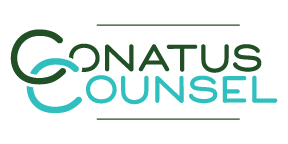Overview
Because of the drop in the economy many home and condo owners have found themselves unable to pay Home or Condo Owners Association (HOA or COA) assessments, dues/fees, and, if applicable, fines. Once these amounts owed become delinquent, the HOA or COA may be able to perfect a lien in order to get payment or get a judgment to eventually secure payment down the road. While it may be somewhat covered in the HOA and COA documents, North Carolina law provides a specific process for collecting unpaid assessments and other HOA or COA fines and dues. The important thing to remember with all liens, is the importance of meeting the statutory deadlines and requirements to perfect one’s interests in securing payment of amounts due. Additionally, there is a good chance that an HOA or COA can recover the attorney’s fees and costs expended to recover unpaid assessments and fines, as long as such action is provided for in the HOA and COA documentation.
The Bylaws or Covenants, Conditions, & Restrictions (CC&Rs) for your HOA or COA should set out assessments and fines, including amounts due and the process of recovery. This is one reason that it may be valuable for a developer, HOA, or COA to hire an attorney to draft handover documents as well as the important HOA or COA Bylaws and CC&Rs. Generally it is within this documentation that the dues, assessment fees, fines and penalties, along with general rules, and potential for recovery of funds and fees spent to recover delinquent assessments or fines owed (i.e. attorney’s fees and costs) should be outlined.
When association assessments and fines go unpaid by home or condo owners, a lien for those unpaid amounts due automatically accrues if the amount owed is not paid within 30 days of the demand. Therefore, a lien exists if the assessments have been unpaid, but is not perfected, or made public, until a Claim of Lien is filed. A lienholder cannot proceed with foreclosure or get a judgment against the debtor, to potentially attach to the subject property, on the lien amounts due until the lien has been perfected. After 30 days have passed since the demand date, the HOA or COA will then need to move to perfect a lien in order to secure its rights to payment. If a HOA or COA is planning to file and perfect such a lien, then a “claim of lien” demand letter for all amounts due for the particular property has to be mailed to the debtor, by First Class Mail, no less than 15 days prior to the filing of the Claim of Lien. The HOA needs to make sure the address the demand letter is mailed to is the proper address for the property owner.
The general information required to perfect an HOA or COA lien is: claimant’s information, debtor’s information, property information, including a description, dates of infractions and billed amounts, detailed current amounts due, and a general description of “why”. It will be cheaper for the HOA or COA client if the subject information and documentation required is held by the HOA or COA in an easily accessible and organized fashion. If it is outlined in the Bylaws or CC&Rs, there is also the possibility of recovering attorney’s fees and costs from the debtor down the road, but that is never guaranteed.
Filing a Notice of Claim of Lien and perfecting it can be done by an attorney, generally for a flat fee. It is important for HOAs and COAs to be aware of the deadlines so that they can complete the steps to perfect a lien within the amount of time required, and it is important that the perfection of the claim is completed, and, if required, a judgment secured, before any sort of short sale or foreclosure auction on the debtor’s subject property occurs. If the subject property is sold prior to a judgment on the property being secured, then the HOA or COA could be out of luck on recovering amounts owed.
Once a lien has been perfected, the HOA or COA may be able to institute foreclosure proceedings to get payment. However, it may make more economical sense, if the lien amount owed is not exorbitant or crucial to the running or existence of the association, for the HOA or COA to wait for the homeowner to attempt to sell the property and then recoup fees prior to the sale or out of the sale proceeds. Additionally, please note that the foreclosure process for foreclosing upon a lien for fines is more complicated and cumbersome than a simple assessment lien. If judgment route of action is taken, the lien holder HOA or COA will need to keep tabs on the lien judgment to make sure it does not expire (generally 10 years in NC, with one possible renewal period of an additional 10 years) and know when the property is attempting to be sold. It is also important to realize that there may be prior liens on the subject property, such as a mortgage, and generally a mortgage lien or foreclosure will take precedence over a HOA or COA lien or foreclosure. Then the HOA or COA may be out of luck, unless there are additional funds remaining after the mortgage amounts due and foreclosure costs have been taking out of the property sale.
If a debtor home or condo owner is facing a potential or perfected lien it is important for them to keep a dialogue running with the HOA or COA in order to discuss a cheaper and more efficient resolution, potentially for both sides. Retainment of an attorney by either or both sides can also help create a more cost effective and efficient resolution, with the advantage to the home or condo owner of potentially preventing the securing of a judgment on the debtor’s subject property.




